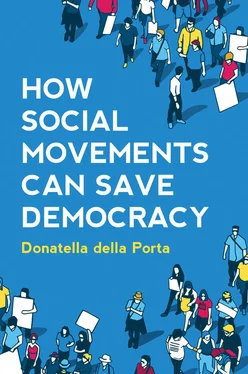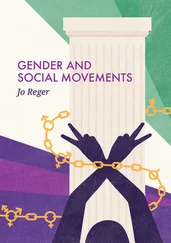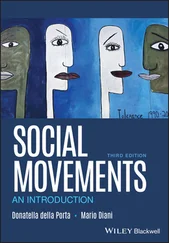In particular, debates have emerged around two main characteristics often considered as at the basis of really existing democracies: delegation of power, and majoritarian decision-making (even if with different degrees of protection of minorities through constitutionalization of rights and institutional checks and balances). These two elements have in fact been in tension with other democratic qualities that constitute the building blocks of other conceptions of democracy.
First of all, participatory democratic theorists have long pointed towards the importance of creating multiple opportunities for participation by involving citizens beyond elections (Arnstein 1969; Pateman 1970; Barber 1984). While elections are seen as too rare, offer only limited choices, and can be manipulated in various ways, participation is praised as capable of constructing good citizens through empowering interactions. Participation in different forms and in different moments of the democratic process is considered as essential in socializing citizens to visions of the public good, also potentially increasing trust in and support for political institutions. Expanding the semantic meaning of politics, participatory approaches call for democracy not only within parliaments and governments, but also in societal institutions, from workplaces to neighbourhoods, from schools to hospitals, from the local to transnational institutions.
Majoritarian decision-making has also been criticized on several grounds. The power of the majority might jeopardize the rights of minorities, bringing about the need for the constitutionalization of some rights. In addition, there is no logical assumption that grants that the preferences that are more supported in terms of numbers are also the best for the collectivity. Considering these limits of majoritarian decision-making, deliberative normative theories have stressed the importance of creating high-quality discursive spaces, in which participants can exchange reasons and construct shared definitions of the public good (Cohen 1989; Habermas 1996; Elster 1998; Dryzek 2000). In this vision, the more the definition of interests and collective identities emerges, at least in part, through a high-quality discursive process, the more legitimate and efficient the outcome is expected to be. Legitimacy does not arise in fact from the number of pre-existing preferences, but rather from a decision-making process in which citizens can relate to each other, recognizing others and being recognized by them. Decisions are democratic not (so much) when they have the support of the majority, but rather when opinions are formed through a deliberative process in which reasons are freely exchanged. In high-quality discursive spaces, citizens, treated as equal, can understand the reasons of others, assessing them against emerging standards of fairness. In addition, public arenas with high discursive quality should help participants to find better solutions, not only by allowing for carriers of different knowledge and expertise (rather than just self-appointed ‘experts’) to interact, but also by changing the perception of one’s own preferences, making participants less concerned with individual, material interests and more with collective goods. While the extent to which deliberation implies the actual building of consensus or the transformation of preferences is debated (Dryzek 2010), discursive quality requires a recognition of others as equal, with an open-minded assessment of their reasons.
Bridging participatory and deliberative conceptions of democracy, some scholars have pointed towards the importance of building enclaves free from institutional power (Mansbridge 1996) and developing ‘processes of engaged and responsible democratic participation [which] include street demonstrations and sit-ins, musical works and cartoons, as much as parliamentary speeches and letters to the editor’ (Young 2003, 119). In particular, subaltern counter-publics (including workers, women, ethnic minorities and so on) form parallel discursive arenas, where counter-discourses develop, allowing for the formation and redefinition of identities, interests and needs (Fraser 1990).
Participatory and deliberative conceptions of democracy challenge some of the main assumptions not only of really existing democracies, but also of technocratic alternatives to them. Supporters of what Colin Crouch (2003) has defined as the ‘post-democratic’ view the democratic malaise as related to too much participation. As neoliberal approaches stigmatize what they see as unreasonably high expectations about state responsibilities, in a rehearsal of the analysis already developed in the 1970s by the so-called trilateral report (Crozier et al. 1975), technocratic solutions are suggested to reduce the ‘overload’ of demands on the state. Building upon arguments that citizens are unable to understand political complexities and formulate sound opinions (e.g. Schumpeter 1943), the assumption is that electoral accountability puts elected representatives under the pressure of selfish individuals. The suggested solutions are therefore to reduce the competences of the state (freeing the market from state control), and to give power to electorally unaccountable institutions. Considering citizens as selfish, but also ignorant and therefore unable to pursue even their own private good, technocratic solutions are based on a fear of the brutal instincts of the masses. Lack of pressure from below is seen as favouring bipartisan agreements and reducing inequalities, movement pressures are considered as fuelling polarization and increasing inequalities (McAdam and Kloos 2016).
Contrasting the assumption that deciding on public issues is too complex a task to be left to the mass of citizens, participatory and deliberative conceptions on which the democratic innovations I am going to analyse are based trust citizens, their knowledge and their reasons. Public debates are considered as formative and, therefore, participation produces better citizens as ‘people may become more competent and responsible if they are allowed to participate in public deliberation and actual decision-making’ (Setälä 2009, 3). Direct forms of democracy might stimulate citizens by empowering them, increasing their sense of civic duty as well as their political efficacy (Smith and Tolbert 2004): they provide for ‘education in democratic citizenship’ (Dyck 2009, 540). While, in minimalist conceptions of democracy, ideas, interests, preferences and/or identities are assumed to develop outside of the democratic process, participatory and deliberative conceptions emphasize instead the capacity of democratic arenas to stimulate the development of inclusive collective identities. As the competence of experts is challenged by processes of politicization of science (della Porta, Keating et al. 2018), econocracy is not a solution to democratic stress; instead, it risks reducing not only the legitimacy of decision-makers but also the efficacy of their decisions. It does not help individuals to learn to be good citizens, but instead pushes them to the margins and makes them more responsive to populist leaders.
Even within really existing democracies, the suggestion that participation and deliberation must (at least) supplement representative and majoritarian institutions has been implemented through various democratic innovations (Barber 1984; Fishkin 1997). In their concrete evolution, existing democratic states and societies have mitigated the ideal-typical principles of representative democracy, mixing them with others that are linked to different conceptions of democracy (della Porta 2013). In implicit recognition of the limits of delegation and majoritarian decision-making, the really existing democracies have combined institutions privileging different democratic qualities. Participatory conceptions have penetrated the democratic state through reforms that have introduced channels of citizen participation in schools, in factories and in neighbourhoods, but also through the political recognition of movement organizations and of the ‘right to dissent’. Referendums, once considered as a residual vestige of direct democratic procedures, are increasingly used, as are institutions in which the principle of delegation is limited, including in institutions based on representatives chosen by lot, as well as consensual decision-making. Democratic innovations – from participatory budgeting to deliberative mini-publics (Font et al. 2014) – have spread attempts to restore citizens’ trust in democracy, as well as bringing in their expertise and knowledge.
Читать дальше












